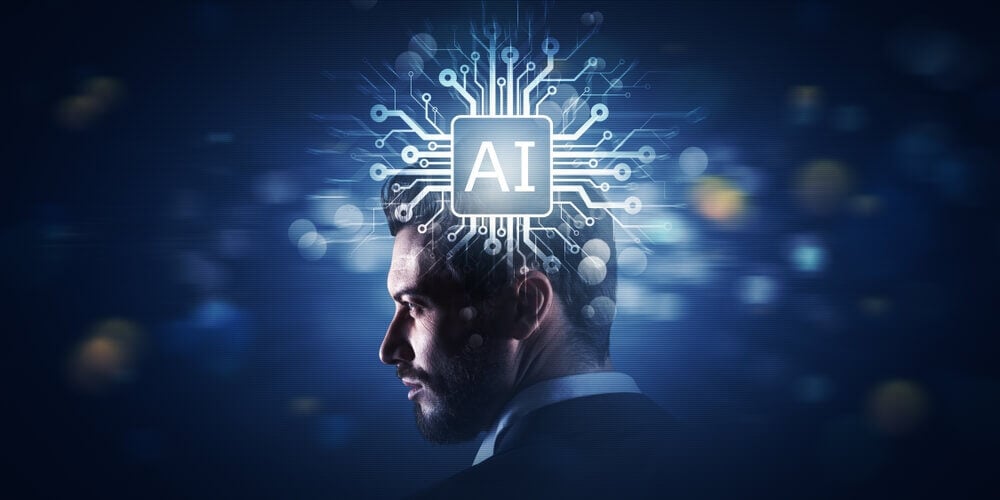
AI and Marketing: Integrating New Technologies into Your Campaigns
Even as the debate continues about the rise of AI, integrating artificial intelligence into marketing is essential for businesses aiming for digital dominance. The strategic use of AI is revolutionizing marketing by enabling highly personalized campaigns, predicting consumer needs, and enhancing customer interactions. It doesn’t take a human’s place, but it boosts their efficiency by automating tasks like email marketing and customer service. Taking these repeatable tasks off your team's day-to-day task lists allows them to focus on strategy and creativity.
Here are some real-world examples and research with practical insights that outline the best use of AI's potential in marketing personalization. Ready to dive in?
The AI Revolution in Marketing
Personalized Customer Experiences
AI leverages extensive datasets to tailor marketing messages and offers, significantly enhancing customer engagement and conversion rates. By employing machine learning algorithms, it identifies patterns and preferences within the data. For instance, Amazon's sophisticated recommendation engine shows cute designer sandals to one user and rugged hiking boots to another. It suggests these products based on a customer's browsing history, past purchases, and items purchased by others with similar interests. This personalized approach elevates the customer experience, drives sales, and fosters loyalty.
Predictive Analytics
AI predicts future trends and customer behaviors. Can it predict the next blockbuster movie? Probably not, but it can help Tubi recommend shows and movies by analyzing users’ viewing habits, preferences, and peak activity times. And when Tubi knows who’s watching which shows, and when, you can make proactive, data-driven decisions and insert your ads tailored to that audience demographic. This personalized recommendation system enriches the user experience, boosts engagement, and enhances retention.
Automated Content Creation
AI can write text and ad copy, create images, and even videos. These advanced technologies use algorithms to try and understand and emulate human creativity and nuance. Tools like Copy.ai efficiently generate tailored marketing copy based on specific keywords and topics. There is abundant research saying consumers either love or hate AI content. Some say they wouldn’t take the time to read something no one took the time to write, while others are unfazed by AI-generated content and simply like what they like. Whichever side of the debate you’re on, using AI to generate content saves time and, done right, builds brand-centric content that persuades customers to take action.
Enhanced Customer Support
AI chatbots provide instant, 24/7 support, efficiently handling multiple interactions simultaneously. These sophisticated systems can answer queries, resolve issues, and offer personalized assistance in real-time. E-commerce sites extensively use chatbots to guide customers through purchases, offer recommendations based on browsing history, and enhance the overall shopping experience. This seamless AI integration improves customer satisfaction and boosts operational efficiency.
Benefits of AI in Marketing
The integration of artificial intelligence in marketing offers numerous benefits, revolutionizing how businesses approach their campaigns and interact with customers. Here are some key advantages:
Enhanced Efficiency
AI automates routine tasks, enabling marketing teams to concentrate on strategic activities. AI liberates valuable time by handling duties such as email marketing, social media scheduling, and ad placements. AI tools can continually optimize these tasks based on performance data, ensuring marketing efforts align with the latest trends and audience preferences.
Data-Driven Insights
AI delivers actionable insights from big data and analyzes vast datasets in real time. It identifies marketing trends and patterns that are otherwise hard to detect. These insights empower marketers to make informed decisions, optimize campaigns, and better understand their target audience, leading to increased effectiveness and ROI. Moreover, AI can predict future trends by leveraging predictive analytics, giving marketers a competitive edge by allowing them to anticipate changes in consumer behavior and market dynamics.
Cost Reduction
AI minimizes the need for large teams and manual processes, resulting in significant cost savings. Automating tasks previously managed by multiple employees streamlines operations, reduces errors, and lowers labor expenses. Additionally, AI helps allocate budgets more efficiently by pinpointing the most profitable marketing channels and tactics. This financial efficiency reduces waste and ensures every dollar spent on marketing yields the highest possible return, making it easier for you to scale your operation and grow sustainably.
Improved Customer Engagement
AI-driven personalization leads to higher customer engagement and more relevant interactions. AI tailors messages and offers to each customer by evaluating individual preferences and behaviors. Some say this personalized communication makes a customer feel more loyal and, overall, more satisfied with their experience. But is it because it is more personalized or because AI facilitates real-time customer interactions through chatbots and customized email responses, ensuring customers receive timely and accurate support, thereby boosting satisfaction and trust in the brand? Either way, people do feel more satisfied, more loyal, and more likely to purchase again!
Enhanced Creativity and Innovation
Beyond these advantages, AI also fosters creativity and innovation within marketing teams. By taking over mundane and repetitive tasks, AI frees up marketers to experiment with new ideas and approaches. This freedom can lead to more innovative campaigns that capture the audience's imagination and drive engagement. AI tools can also assist in the creative process by providing insights into the types of content the target audience responds to, suggesting creative elements, and even generating content that aligns with the brand's voice and style.
In summary, integrating artificial intelligence is not a marketing trend but a transformative shift offering enhanced efficiency, data-driven insights, cost reduction, improved customer engagement, and a boost in creativity and innovation.
The Future of AI in Marketing
Hyper-Personalization
Advancements in AI are driving increasingly refined personalization, offering real-time, unique experiences for each customer. Enhanced machine learning algorithms and sophisticated data processing techniques enable businesses to gain deeper insights into individual preferences and behaviors. As a result, marketing messages, product recommendations, and customer journeys can be finely tailored to each user, significantly boosting engagement and satisfaction.
AI-Driven Creativity
AI is expanding its role in creative processes, generating art, music, and interactive content. For instance, AI can compose music to suit specific moods or create visually striking graphics for marketing campaigns. By leveraging AI in creative tasks, companies are pushing the boundaries of innovation.
Voice and Visual Search
AI enhances voice and visual search capabilities, necessitating optimized content to cater to these methods. As more consumers turn to voice assistants and visual search to find information, businesses must adapt their content strategies. This includes optimizing product descriptions, images, and metadata to ensure visibility in voice and visual search results. By embracing these technologies, companies will improve accessibility and convenience for users, making it easier for them to find and engage with content.
Ethical AI
As AI becomes more integrated into marketing, ensuring transparency, fairness, and data privacy is crucial. The growing use of AI necessitates addressing ethical concerns related to data usage, algorithmic bias, and privacy. Marketers must commit to ethical AI practices by being transparent about data collection and usage, ensuring algorithms function fairly across all demographics, and protecting customer data. Building trust with users through responsible AI practices is key to long-term success.
Conclusion: Harnessing AI for a Future-Forward Marketing Strategy
AI is transforming digital marketing by providing indispensable tools for data analysis, personalized customer experiences, and task automation. These advancements empower businesses to gain deeper insights into customer behavior, streamline operations, and execute more effective marketing campaigns. Leveraging AI-powered solutions, companies can secure a competitive edge through enhanced efficiency, precise targeting, and improved engagement.
From predictive analytics that forecast market trends to chatbots offering 24/7 customer support, AI applications in marketing are diverse and continually expanding. This evolution enables businesses to meet and exceed customer expectations, fostering loyalty and driving growth.
To integrate AI into your marketing strategies effectively, explore the wide array of available tools. A thorough understanding of AI capabilities will help identify the right solutions tailored to your specific business needs, ensuring a higher return on investment.
For expert guidance on maximizing AI's potential in your marketing efforts, connect with Mid-West Family Madison. Our team of specialists can help you navigate the evolving digital marketing landscape with cutting-edge AI solutions, ensuring your business stays ahead of the curve. Let us assist you in transforming your marketing strategies and achieving remarkable results with the strategic use of AI.




